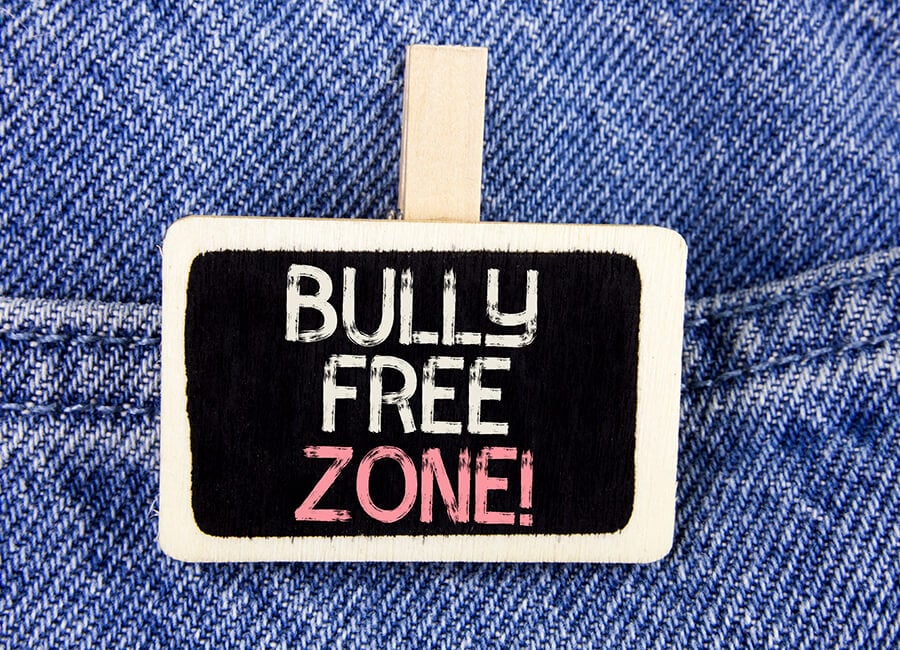Dealing with workplace bullying in your salon


Bullying doesn’t just happen at school: instead, it can take place anywhere and at any time of life. According to research from the TUC, 29% of those surveyed had been bullied at work and nearly half (46%) said bullying had a negative impact on their job performance. More than a third of those who’d been bullied had quit because of it.
Which means not only is bullying in the workplace incredibly distressing for anyone who is experiencing it, it’s also bad for business.
So whether you’re a salon owner who’s worried about bullying in your hair or beauty salon, or you’re an employee who feels you are being harassed, here’s what you should know.

According to Acas, a free advice service for employers and employees, bullying and harassment means “...any unwanted behaviour that makes someone feel intimidated, degraded, humiliated or offended.”
Bullying isn’t just face-to-face, it can happen behind someone’s back, in an email, over the phone or on social media. It is repeated behaviour rather than a one-off incident. Forms of bullying could include:
- Spreading of rumours about someone who works in the salon;
- Social exclusion of one of your team - for example, they are left out of drinks or staff events;
- Bullying from a manager – if a manager is consistently treating one employee more harshly than the rest of the team.
“Keep a diary of the bullying and - if you feel able - try and resolve it informally by telling whoever is bullying you that their behaviour isn’t acceptable and they need to stop it”

Are you being harassed at work?
Unlike bullying, harassment is covered in the Equality Act 2010 and is against the law. It is defined as “unwanted conduct which is related to one of the following: age, disability, gender reassignment, race, religion or belief, sex and sexual orientation.”
Forms of harassment, which can be one-off incidents, could include:
- Homophobic comments
- Comments based on your gender
- Unwanted sexual advances
The Citizens Advice Bureau has lots of useful information about harassment at work and how to work out if it’s happening to you.
What can I do as an employer to prevent and handle workplace bullying?
As an employer, you are responsible for preventing bullying and harassment in the workplace. You also are liable for any harassment suffered by your employees. But more than this, it’s in your interest to stamp out bullying. Everyone deserves to be happy in the workplace, and bullying is proven to cause a reduction in productivity across the board: it causes employees to call in sick, lowers team morale and even means staff leaving their jobs.
Acas has produced a free booklet for managers with advice on how to tackle bullying and harassment. This includes:
- Putting in place a formal policy around bullying and harassment at your salon;
- Setting a good example: the behaviour of employers and senior managers is as important as your formal policy;
- Putting procedures in place to make sure you deal with complaints from employees quickly;
- Including expected standards of behaviour at your salon in your staff handbook.
What should you do if you’re being bullied or harassed at work
If you’re being victimised at work, it’s likely you’re feeling very stressed and anxious. As such, the TUC advises that the first step is to talk to someone to get some support. You should also keep a diary of the bullying and - if you feel able - try and resolve it informally by telling whoever is bullying you that their behaviour isn’t acceptable and they need to stop it.
If this doesn’t work, or you don’t feel comfortable talking to the person bullying you, talk to your manager and show them your evidence. It’s also worth joining a union - they can support you at work and go to any meetings with you about a formal complaint.
You can make a formal complaint using your salon’s grievance policy.
If you’re being harassed, and the above steps don’t work, you have the extra option of taking legal action at an employment tribunal for bullying. Find out more about this on the Gov.uk website.


